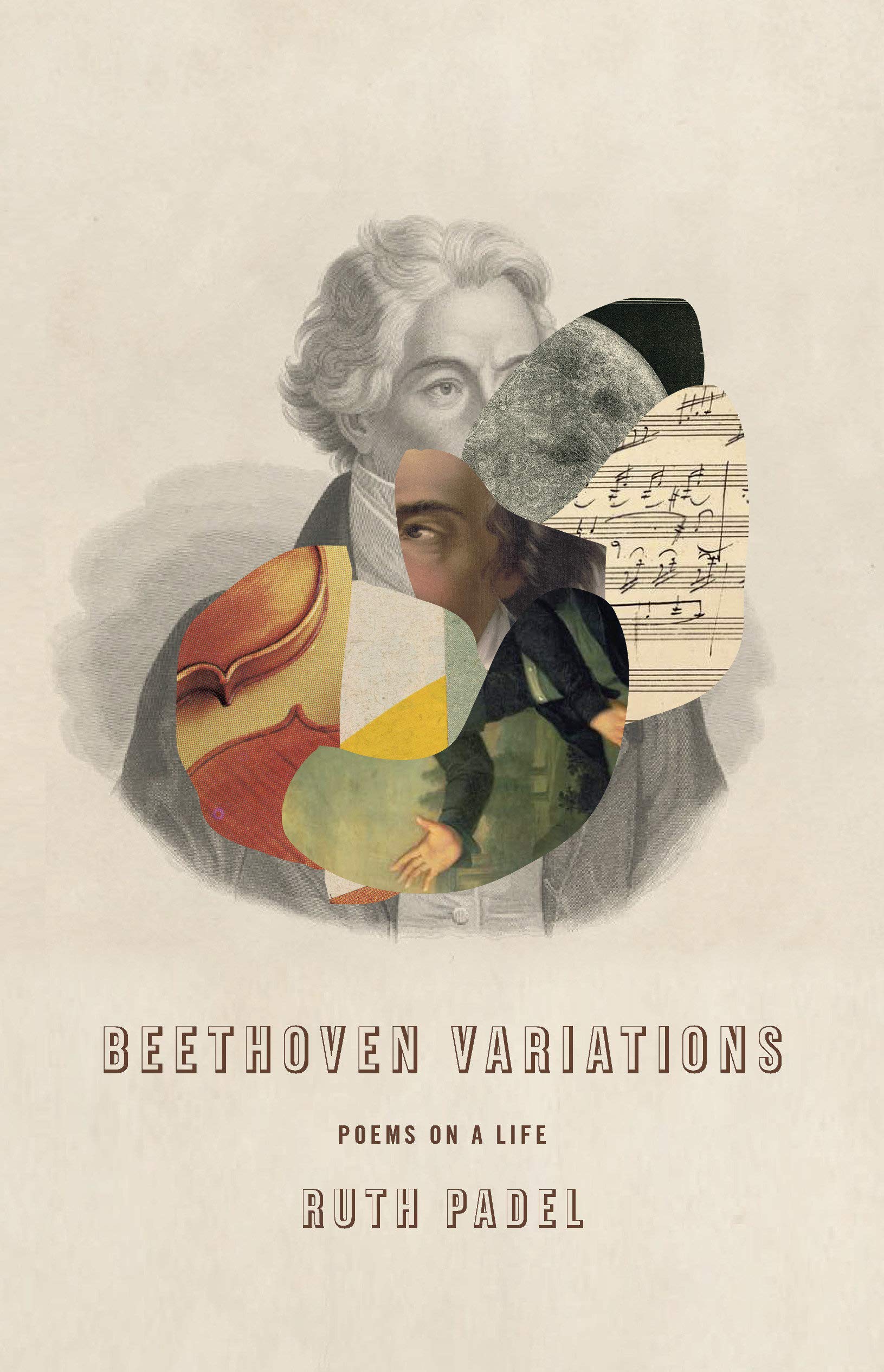Beethoven Variations by Ruth Padel
(144 pages -103 poetry and the remainder comprised of end notes and references; Knopf, 2021)
Reviewed by Greg Gilbert for Cholla Needles
Ruth Padel’s poetic biography is arranged in four movements that provide insights into Beethoven’s life. From his time as a beaten and weeping child acquiescing to his drunkard father’s demands that he practice at the clavier and his days as a young artist who is upbraided for the sin of improvisation to his time as a budding prodigy who is sent to study with Mozart only to have to return home to his dying mother, this is the poetically told story of an artist who is losing his hearing in a world where medical practitioners are nothing more than leech equipped barbers. We see Beethoven become an artistic triumph and a dejected romantic in war-ravaged Europe. And, finally, we accompany his retreat into an isolating silence.
Now 250 years after his birth, Beethoven’s originality is celebrated by Padel’s intimate, personal, and often surprising compositions. At times she comes to the fore, speaks in the first person and reflects on her interpretation of the great composer’s life, injecting a sense of loving wonder into the tone of her composition: “I see a small boy dashing through these alleys / to play for early mass.” The result is a sense of serious connection to this exploration of the maestro’s life. Throughout the work, she references his music, her poetry at times light and at other times relying on the dark keys, and as with any great composition, there is a circular unity to her work. It begins with a description of the “ear bone,” and concludes with notes from his autopsy, “and the auditory nerve / withered / to a pure white strand.” Between the opening and closing lines there is a level of conjecture that never asserts but, rather, spans the previous two-and-a-half centuries with feelings of compassion.
Beethoven is not merely a historical figure, his life remains relevant, not only through conjecture but through the ongoing life of his work. His music accompanied my reading of Padel’s poems. “A sonata in C-sharp minor, / quasi fantasia, like a blind girl / lit by moonlight she cannot see. / New melodies unfold from tiny seeds. / Euphoria, then presto agitato, manic rage.” Many of the poems are set up by notes from Beethoven’s journals, correspondences, and scholarly insights. “A Flute of Lilac Wood” is introduced by a passage from Ferdinand Ries, “Beethoven Remembered”: “For half an hour he could not hear anything at all and became extremely quiet and gloomy, though I repeatedly assured him that I did not hear anything any longer either (which was, however, not the case).” Padel’s poetry elaborates, “But leaves don’t rustle, birds forget to sing, / Your friend hears a shepherd in the forest play / a flute of lilac wood.” In introducing her poem “Human Fire,” Padel quotes from a letter that Beethoven wrote to Bettina von Arnim in 1812, “Music should strike fire in the heart of man.” Her poem offers direct address, “ . . . You are Prometheus / the benefactor, stealing flame.” And later in her poem, “Until It Please the Fates to Break the Thread,” she employs third and first person, “He cannot hear the driving rain. / But he’s sketching a funeral march, / a symphony. I have taken a new path.”
While Ruth Padel’s body of poetry includes such works as Darwin and The Art of Kintsugi as well as prose works of fiction and nonfiction and essays, I will remain most grateful for Beethoven Variation. This time of immersion in Beethoven’s music accompanied by her poetic insights has provided a rich experience, one that I recommend with enthusiasm.
_ _ _ _ _ _
 |
| More info |

No comments:
Post a Comment
Note: Only a member of this blog may post a comment.